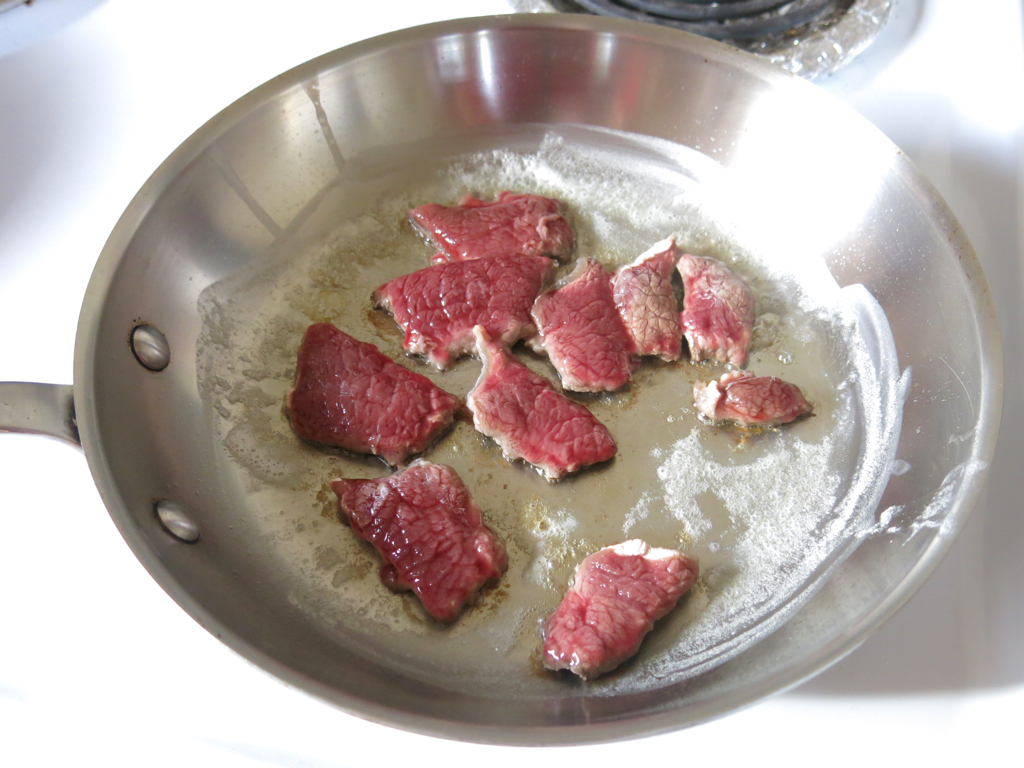Yes, yes, I know, once you saw a Disney movie in which a deer was killed and now you can’t eat venison. However, from an ecological standpoint, deer are a native species that fill an existing ecological niche, unlike the soybeans in your tofu which are invasive exotic species raised in monoculture fields that wipe out countless acres of habitat. And if you’re a small farmer, like Carol’s friend Eva, deer are an herbivore pest in a landscape that now lacks large carnivores to keep their population in check. So eating low-fat, free-range, non-GMO, antibiotic-free, organic venison that is untouched by American Agribusiness is actually an environmentally sound act that lets us humans fill the ecological niche of the large carnivores we have mostly extirpated from North America. It’s nice when we humans can play a positive role in the ecosystem, instead of just replacing the existing ecosystem with our own suburban and urban ecosystems.
When she stayed with us earlier this week, Eva gave use part of a haunch of venison. Carol stir-fried some chunks of venison with onions and greens; it looked really good, but I decided I wanted plain venison. I sliced it thin, and gently fried it in a little butter for a late brunch.

After gently frying both sides, I covered the pan and let it steam for a minute until the meat was just well-done, with no red in the center. It was fabulous: lean, tender, and very tasty. I re-heated some of the “Warthog” wheat berries in the pan drippings, and the combination of the nutty wheat, the butter, and the meat drippings was the perfect addition to a satisfying brunch.
